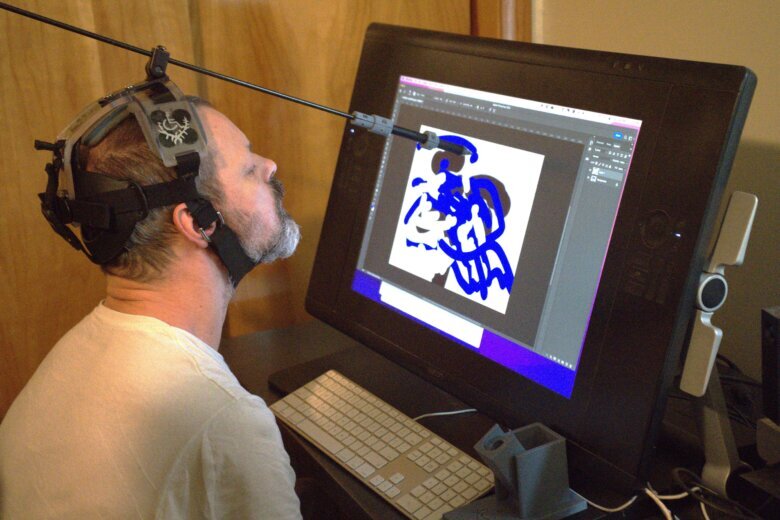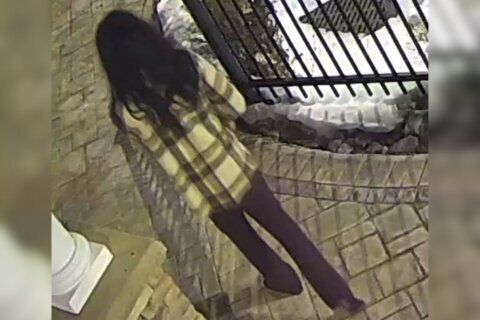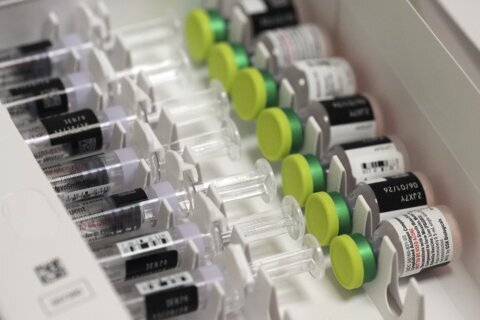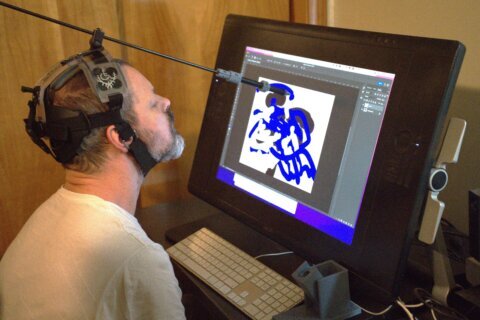
At the recent unveiling of a modified wheelchair — one that allows a little girl with cerebral palsy to play lacrosse — Michael Zimmerman looked on, smiling.
“It’s really exciting. It’s great to see projects get put into place where they’re actually helping people and you can actually see how they’re having an effect on the person,” he said.
Zimmerman is with Volunteers for Medical Engineering, an organization that links engineers with students who work on projects for clients with a range of needs, such as adaptive work tools, modified sports equipment or even customized cribs.
Zimmerman had been working with students from the College Park Academy in Prince George’s County, Maryland, who produced the wheelchair user’s lacrosse stick.
VME program director Angela Tyler said her organization not only works with schools around Maryland to connect students with engineers, but also reaches out to find people who become the “clients” of the engineering students.
“Right now, we’re actually looking for some additional creative requests for the fall so that we can match projects up with our school teams,” she said. “If there are any families out there that want a custom device, we’d love to work with them.”
Tyler told WTOP that while students are encouraged to be creative in the problem-solving process, meeting the client’s needs remains paramount.
“Everything they (students) have to do has to be in line with what the client needs,” said Tyler.
Clients range in age from infancy to older adults, and a variety of needs are met, from helping with mobility issues to speech.
For example, one client was verbal, but wanted assistance with his speech as he headed off to college. According to Tyler, he wanted to be able to be understood in crowds and areas that might be noisy.
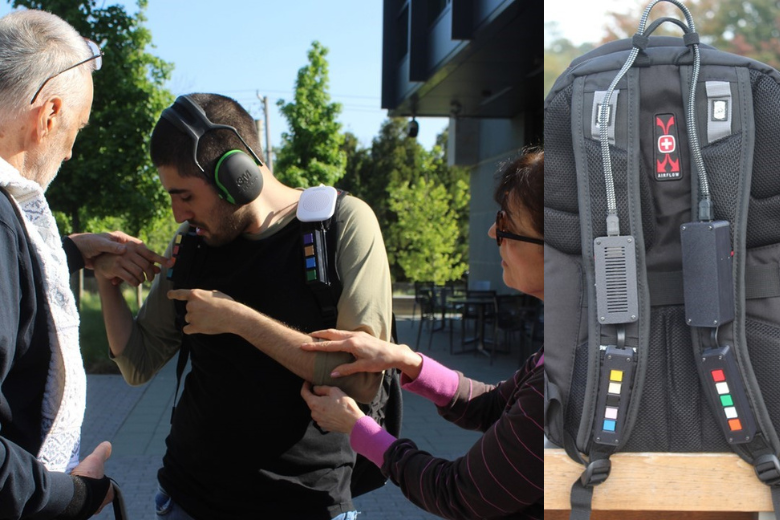
A team of engineers and students created “a communication backpack where you push a button, [and it says phrases like,] ‘Can you tell me where my class is? Can you tell me where the bathroom is?'”
Tyler said it was programmed using the young man’s voice too, giving it a more personal, natural sound.
“It’s really amazing,” she said.
The changes that the innovations create aren’t restricted to the clients who are served by the devices.
“We often hear from the students that we work with that this has been a project that changed their life, not just from a career standpoint, but more from a social change standpoint,” Tyler said.
When the projects are completed, Tyler said tears of joy are shared and families are overwhelmed by the impact the devices provide. She added that for the engineering students, it’s “something meaningful” that allows them to use their talents while doing good in the community.
Get breaking news and daily headlines delivered to your email inbox by signing up here.
© 2024 WTOP. All Rights Reserved. This website is not intended for users located within the European Economic Area.

